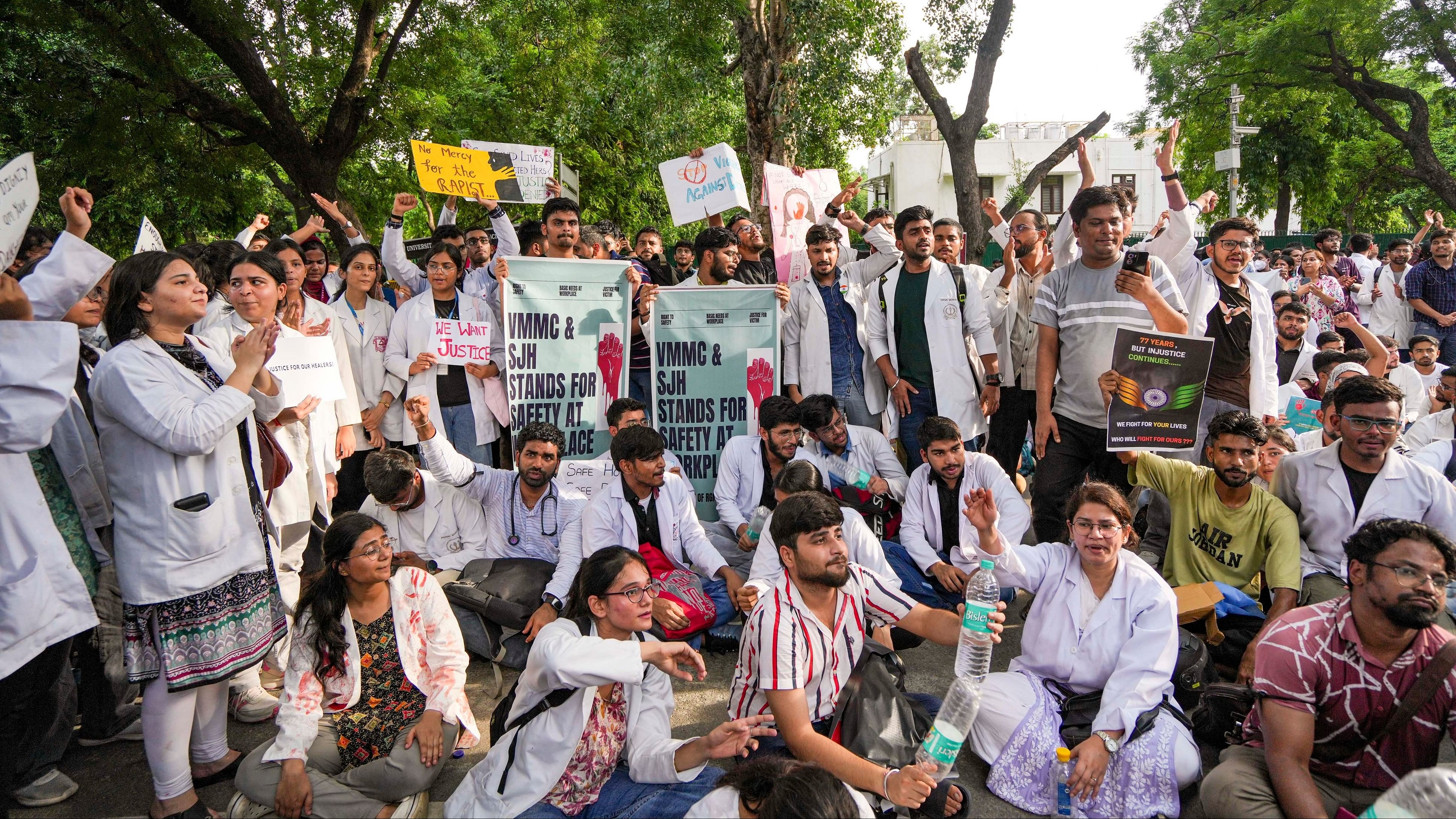
Doctors take part in protest.
Credit: PTI Photo
Kolkata: Thousands of Indian junior doctors on Monday refused to end protests over the rape and murder of a fellow medic, disrupting hospital services nearly a week after they launched a nationwide action demanding a safer workplace and swift criminal probe.
Doctors across the country have held protests and declined to see non-emergency patients following the Aug 9 killing of the 31-year-old medic, who police say was raped and murdered at a hospital in the eastern city of Kolkata where she was a trainee.
A police volunteer has been arrested and charged with the crime. Women activists say the incident has highlighted how women in India continue to suffer from sexual violence despite tougher laws brought in after the 2012 gang-rape and murder of a 23-year-old student on a moving bus in New Delhi.
The government has urged doctors to return to duty while it sets up a committee to suggest measures to improve protection for healthcare professionals.
"Our indefinite cease-work and sit-in will continue till our demands are met," said Dr Aniket Mahata, a spokesperson for protesting junior doctors at the R G Kar Medical College and Hospital, where the incident happened.
In solidarity with the doctors, thousands of supporters of West Bengal state's two biggest soccer clubs marched on the streets of Kolkata on Sunday evening with chants of "We want justice".
Groups representing junior doctors in neighbouring Odisha state, the capital New Delhi, and in the western state of Gujarat have also said their protests will continue.
Gita Gopinath, deputy managing director of the International Monetary Fund, told India's Business Standard daily that workplace safety was important to raise the country's female labour force participation rate, which was 37 per cent in FY2022-23.
"One cannot raise that (female participation) without ensuring safety at the workplace and safety of women in getting to the workplace. That is absolutely critical," Gopinath said in the interview published on Monday.